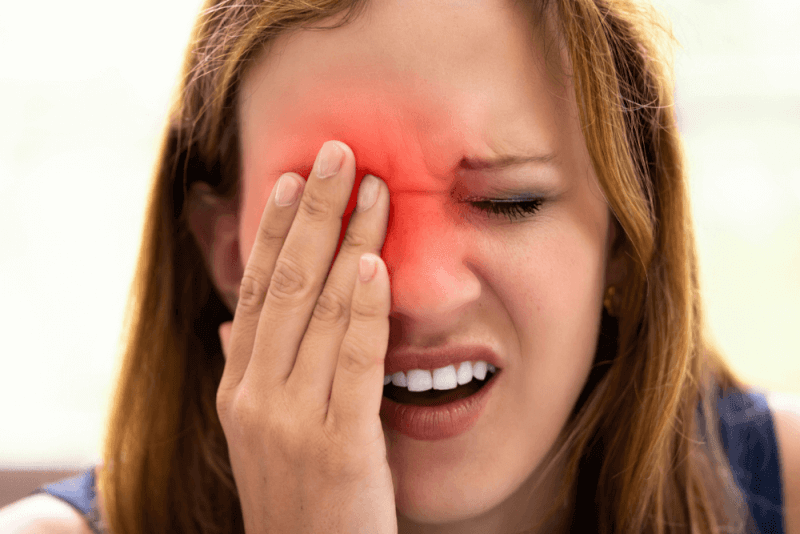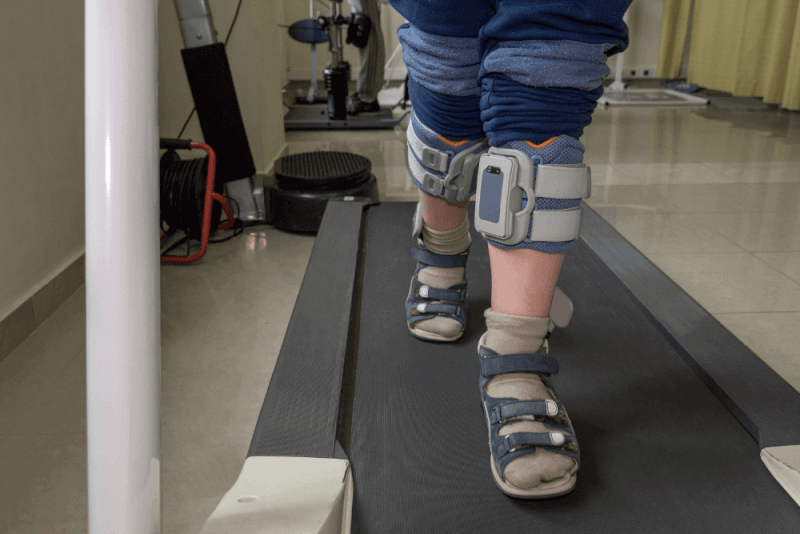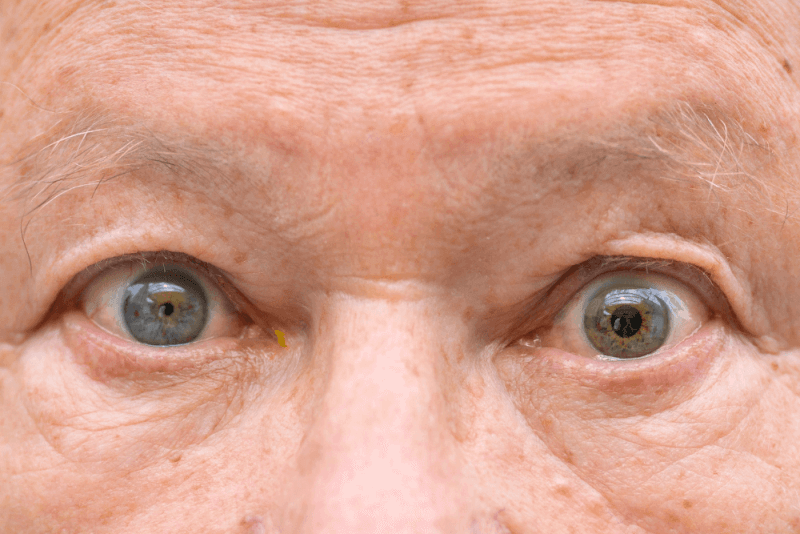What is Eye Twitching?
Eye twitching is defined as the uncontrollable movement or spasm of the eyelid or eye muscles. There are different types of eye twitching, each with different causes.
Types of Eye Twitching
Eye twitching can be categorized into the following types:
Myokymia
Myokymia is the most common type of eye twitching. This type is commonly observed in the general population and usually affects either the upper or lower eyelid, often originating from a specific point in the head. Myokymia typically affects only one eye. The twitching can range from mild to severe enough to be quite bothersome. Usually, the twitching disappears on its own within a short period.
However, in some cases, it may recur after several hours, days, or longer. The contractions in Myokymia are small, slow, and steady. These contractions resemble ripples in water, which is why Myokymia, in Greek, means muscle wave.
Blepharospasm
This type, which can occur in both eyes, involves the squeezing of the eyelids. Although rare, it can be severe enough to affect all aspects of life. Spasms may also occur in just one eye. The contractions felt are intense enough to cause the eye to close. The duration of these contractions can vary from a few minutes to several hours. The twitching may also affect half of the face.
Hemifacial Spasm
In this type, the muscles on one side of the face, including the eyelid, are affected. The twitching starts around the eye and may then spread to other areas of the face.
Fasciculation
In this type of twitching, which specifically affects the muscles around the eyes and within the eyelids, the contractions are small and rapid. Therefore, it is difficult for others to notice them.
Nystagmus
This type of eye twitching affects only the eye muscles. The twitching may occur quickly or slowly, and the muscles can move sideways, upwards, downwards, or in a circular motion.
Causes of Eye Twitching
The common causes of eye twitching include:
- Stress
- Anxiety
- Lack of sleep
- Fatigue
- Stimulants like caffeine
- Use of prescription or non-prescription drugs
- Bright lights
- Light sensitivity
- Vitamin or mineral deficiency
- Physical activity
- Overactive thyroid gland
- Viral infections
Myokymia
Myokymia, the most common type of eye twitching, occurs as a result of various factors coming together.
The causes of eyelid twitching in Myokymia include:
- Alcohol consumption
- Bright lights
- Excessive caffeine intake
- Eye strain
- Exhaustion
- Irritation of the eye surface or inner eyelid
- Nicotine
- Stress
- Smoke or air pollution
The specific causes of Myokymia include:
- Antipsychotics
- Anticonvulsant drugs
- Calcium channel blockers
- Autoimmune and nervous system disorders like MS
- Tumors such as gliomas
Blepharospasm
Blepharospasm is classified into primary and secondary types. Primary blepharospasm occurs without any underlying cause. The most common primary type is benign essential blepharospasm (BEB). BEB is caused by nerve-related issues, although the exact cause is not fully understood. It can also lead to other symptoms, such as light sensitivity and dry eyes.
The secondary causes of blepharospasm include:
- Dystonia
- Meige syndrome
- Tardive dyskinesia
- Parkinson's disease medications
- Wilson's disease
- Seizures
- Epilepsy
Hemifacial Spasm
There are two subtypes of hemifacial spasm in eye twitching. Primary hemifacial spasm typically occurs when blood vessels in the face form a loop and compress a nerve.
Secondary hemifacial spasm reflects more serious conditions. These serious medical conditions include:
- Trauma and injuries causing nerve or brain damage
- Bell's palsy
- Dystonia
- Lesions in the brainstem
- Brain tumors
- Tumors in the parotid gland
- Infections in surrounding structures, such as middle ear infections or mastoiditis
Nystagmus
Nystagmus usually occurs due to the movement of the eyes following an object. Other types of nystagmus arise from more situational causes, such as excessive caffeine or alcohol consumption. In addition, nystagmus can be a sign of some serious neurological problems.
Treatment Methods for Eye Twitching
The treatment of eye twitching varies depending on the underlying cause. Generally, eye twitching is harmless and does not require any treatment. Due to the many different underlying causes of eye twitching, the treatment plan varies accordingly.
Medication Treatment for Eye Twitching
Some causes of eye twitching can be treated with botox injections. In addition, contact lenses, corrective glasses, and certain types of surgeries are also used in treatment.
Home Remedies for Treating Eye Twitching
Eye twitching can often be treated with minor changes. These include:
- Getting enough sleep
- Meeting all nutritional requirements with a balanced diet
- Managing and reducing stress
- Limiting caffeine intake
- Quitting nicotine products
Which Vitamin Deficiency Causes Eye Twitching?
Proper muscle function requires a variety of vitamins and minerals. Deficiencies in B12 and Vitamin D are associated with issues in the muscles that cause eye twitching. In addition, electrolyte imbalances and magnesium deficiencies can also lead to eye twitching.








